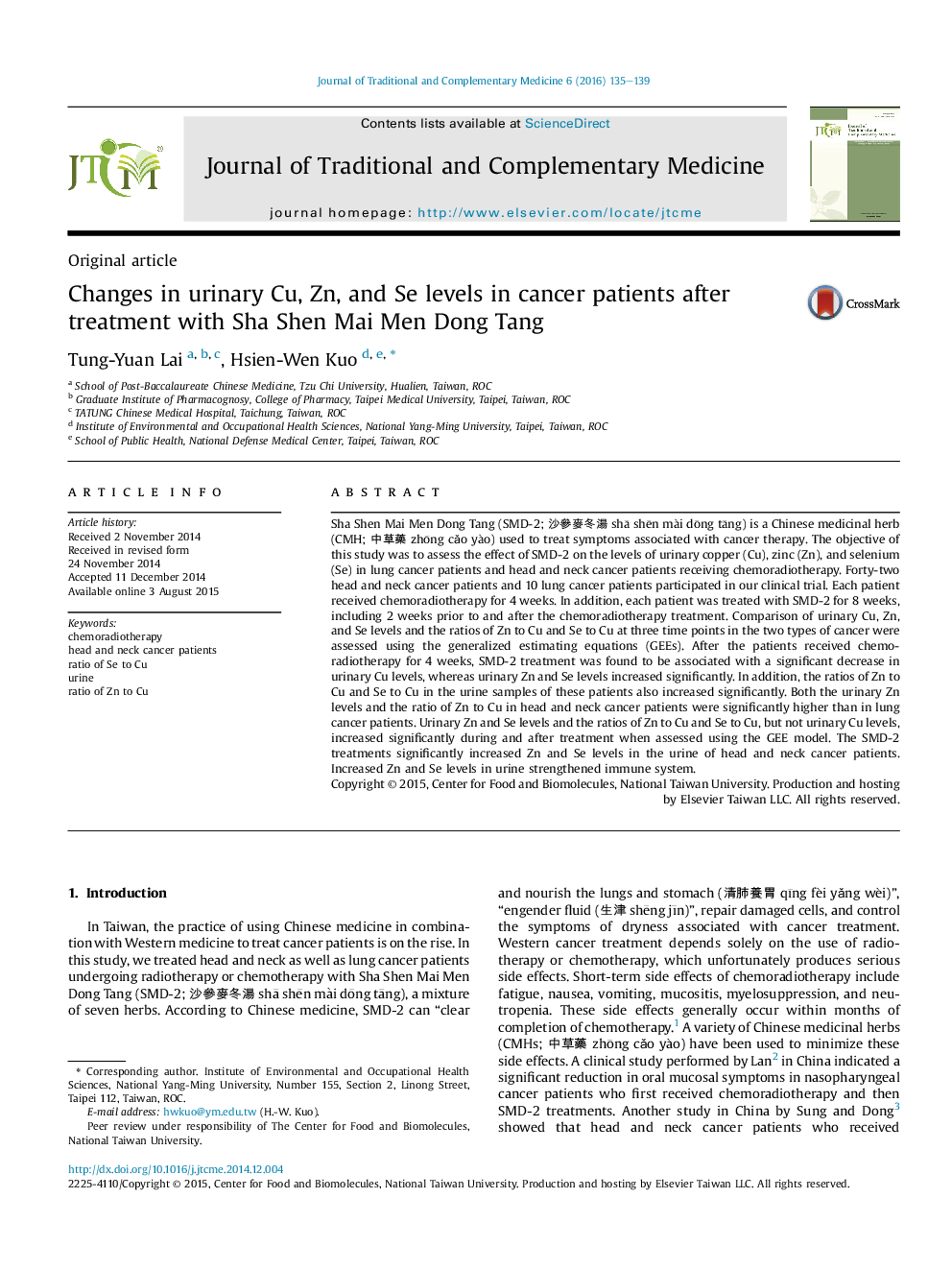| Article ID | Journal | Published Year | Pages | File Type |
|---|---|---|---|---|
| 3099690 | Journal of Traditional and Complementary Medicine | 2016 | 5 Pages |
Sha Shen Mai Men Dong Tang (SMD-2; 沙參麥冬湯 shā shēn mài dōng tāng) is a Chinese medicinal herb (CMH; 中草藥 zhōng cǎo yào) used to treat symptoms associated with cancer therapy. The objective of this study was to assess the effect of SMD-2 on the levels of urinary copper (Cu), zinc (Zn), and selenium (Se) in lung cancer patients and head and neck cancer patients receiving chemoradiotherapy. Forty-two head and neck cancer patients and 10 lung cancer patients participated in our clinical trial. Each patient received chemoradiotherapy for 4 weeks. In addition, each patient was treated with SMD-2 for 8 weeks, including 2 weeks prior to and after the chemoradiotherapy treatment. Comparison of urinary Cu, Zn, and Se levels and the ratios of Zn to Cu and Se to Cu at three time points in the two types of cancer were assessed using the generalized estimating equations (GEEs). After the patients received chemoradiotherapy for 4 weeks, SMD-2 treatment was found to be associated with a significant decrease in urinary Cu levels, whereas urinary Zn and Se levels increased significantly. In addition, the ratios of Zn to Cu and Se to Cu in the urine samples of these patients also increased significantly. Both the urinary Zn levels and the ratio of Zn to Cu in head and neck cancer patients were significantly higher than in lung cancer patients. Urinary Zn and Se levels and the ratios of Zn to Cu and Se to Cu, but not urinary Cu levels, increased significantly during and after treatment when assessed using the GEE model. The SMD-2 treatments significantly increased Zn and Se levels in the urine of head and neck cancer patients. Increased Zn and Se levels in urine strengthened immune system.
